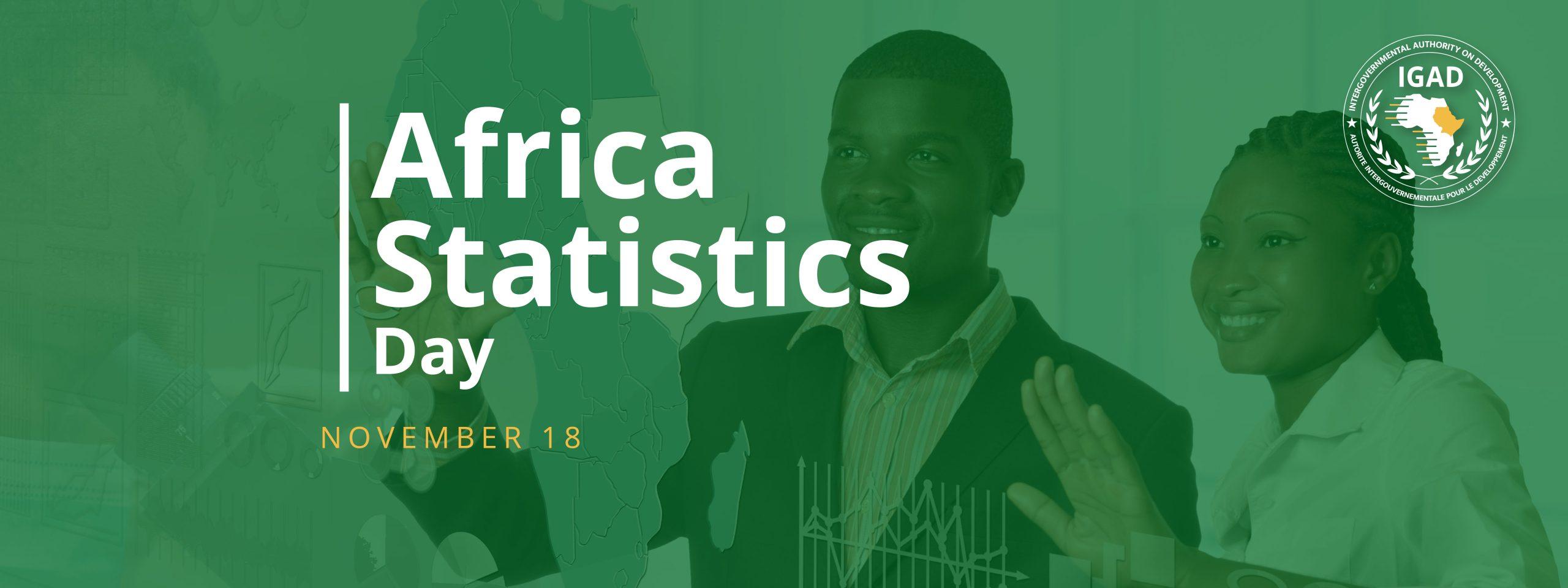Today all National Statistics Offices across Africa celebrate African Statistics Day, whose theme is “Strengthening data system by modernising the production and use of agricultural statistics with a view of informing policies to improve resilience in agriculture, nutrition, and food security on the African Continent”. The main objective of today’s celebrations, as envisaged in this year’s theme, is to raise awareness among the public about the vital role of statistics in all aspects of social and economic development. This awareness provides an opportunity to advocate for systematic and increased use of statistics for evidence-based decision-making, to enhance the relevance of statistics and mainstreaming statistics into national and regional development plans. Statistics are also vital in monitoring and evaluating the progress of attainment of Sustainable Development Goals (SDGs), Agenda 2063 and the IGAD Regional Strategy priorities.
Over the years, the development of statistics has been one of the critical debates of the Assembly of Heads of State and Government of the African Union. This has led to enhancing the Africa Statistics System. Key frameworks underpinning strengthening the capacity of national statistical systems in Africa are the African Charter on Statistics (ACS) and the second Strategy for the Harmonisation of Statistics in Africa (SHaSA 2). Together with the UN Fundamental Principles of Official Statistics and the Cape Town Global Action Plan for sustainable development data, these create an enabling environment for enacting national statistical laws, national strategies for development statistics and regional strategies for development of statistics.
To improve the statistics within the IGAD region, IGAD, in collaboration with AUC and other partners, developed Regional Strategy for the Development of Statistics (RSDS) – a master plan for regional statistical development. This strategy guides the overall implementation of the statistical activities within the region. The key strategic goals include: (i) available data and indicators to meet the statistical needs of IGAD; (ii) quality and comparable regional statistics; (iii) achieve a well-coordinated regional statistical system; (iv) statistics have a high profile in the region; and (v) adequate statistical capacity in the region including the Member States.
As IGAD operationalise the RSDS, the rationale of this instrument is: (i) provision of quality and reliable data to the African Regional Integration Agenda; (ii) supply of data for development of the IGAD region; and (iii) strengthen the role of the RSDS in the African Statistical System.
IGAD has created some platforms to accompany the development of quality statistics. These platforms include the establishment of the IGAD Statistics Unit, IGAD Statistics Committee and the thematic Technical Working Groups on Statistics. These platforms have made it possible to create forums for discussion and exchange on good practices and the challenges of the development and harmonisation of statistics in the IGAD region for better planning, monitoring and evaluation of national and regional development. And intensify advocacy and the development of statistics.
IGAD’s goal is to continue supporting the Member States to develop and improve the quality, availability, consistency and harmonisation of statistics. This support will aid in developing evidence-based policy to contribute towards its vision of ” A resilient, peaceful, prosperous and integrated region where citizens enjoy high quality of life”. Therefore, it is crucial to have support from all the technical and financial partners and a strong commitment from the authorities at the Member States’ level.
By
Charles Ogolla
Statistician
Health and Social Development Division (HSD)
IGAD Secretariat

